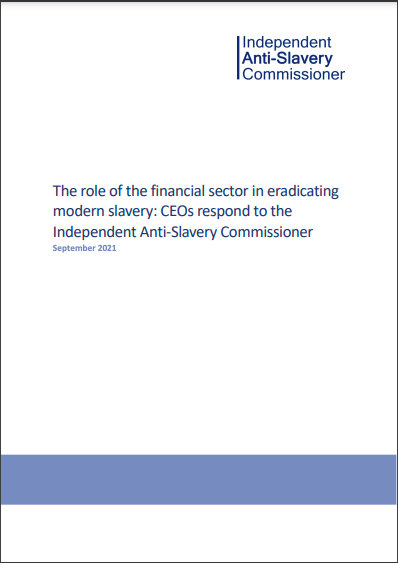However, business leaders need to collaborate in order to do this. My recommendations focus on the need to develop relevant risk management processes and the need to create better systems to share intelligence. I also strongly encourage growing collective action initiatives by investors and suggest that financial services could be a powerful force to encourage action to address significant risks in the electronics business. Finally, until the government legislates to extend Section 54 of the Modern Slavery Act to cover financial portfolios I suggest that business covers these areas voluntarily in their annual modern slavery statements. The financial services sector should ensure that it integrates modern slavery and human trafficking risk across all its business processes, in the same way that it has approached environmental risk.

